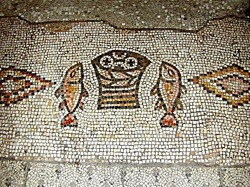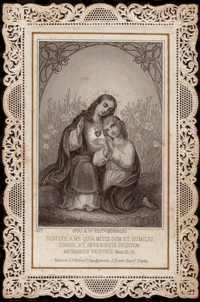Give them something to eat yourselves (Mt 14:16)

Jesus challenges the disciples. Don’t send the people away to fend for themselves, he says - you can feed them!
Often we lack confidence in our own abilities. We do not think we can cope with a situation, or a crisis, or a particular difficulty. Can we cope - or should we just pass the buck? Jesus challenges us, like he challenges his disciples. Yes - you can do it!
But what can we do, and how can we do it?
Well when the disciples have go - they find that what they have is meagre - five loaves and two fishes - how can what I have possibly make any impact? As the Carol says ‘What can I give him, poor as I am’? What change can I possibly make? The little that I can do - could it make any difference?
Certainly - if we think we can achieve everything on our own then we will either become very arrogant or very disappointed. By our own efforts and abilities we can do so much, but only so much. We are human, we have our limitations and our frailties.
So it is Jesus who takes what little can give, and makes them very great. He takes our few gifts and multiplies them like the loaves. He takes the weakness of humanity and makes it strong enough to conquer even death. He helps us face our anxieties and worries, our trials and struggles. He comforts us, he strengthens us. He gives us joy and leads us to happiness.
And the small gifts that we give become the greatest gift that we can receive.
[The new translation of the mass makes this very clear. When the gifts of bread and wine are placed upon the altar, the priest will no longer say ’through your goodness we have this bread/wine to offer’ but ‘through your goodness we have received the bread/wine we offer you’. It’s a small change, but an important distinction.]
When Jesus says to the disciples ‘Give them something to eat yourselves’, the food which they give is Jesus himself, the Bread of Life. What we can do is only small if all we give is ourselves. If the gift which we offer to others is Christ, the Bread of Life, the Shepherd of the lost, the consoler of the sorrowful, the hope of those in despair - if he is the gift which we give, then we give the greatest gift, Hope, Faith, Love - the food of eternal life.



